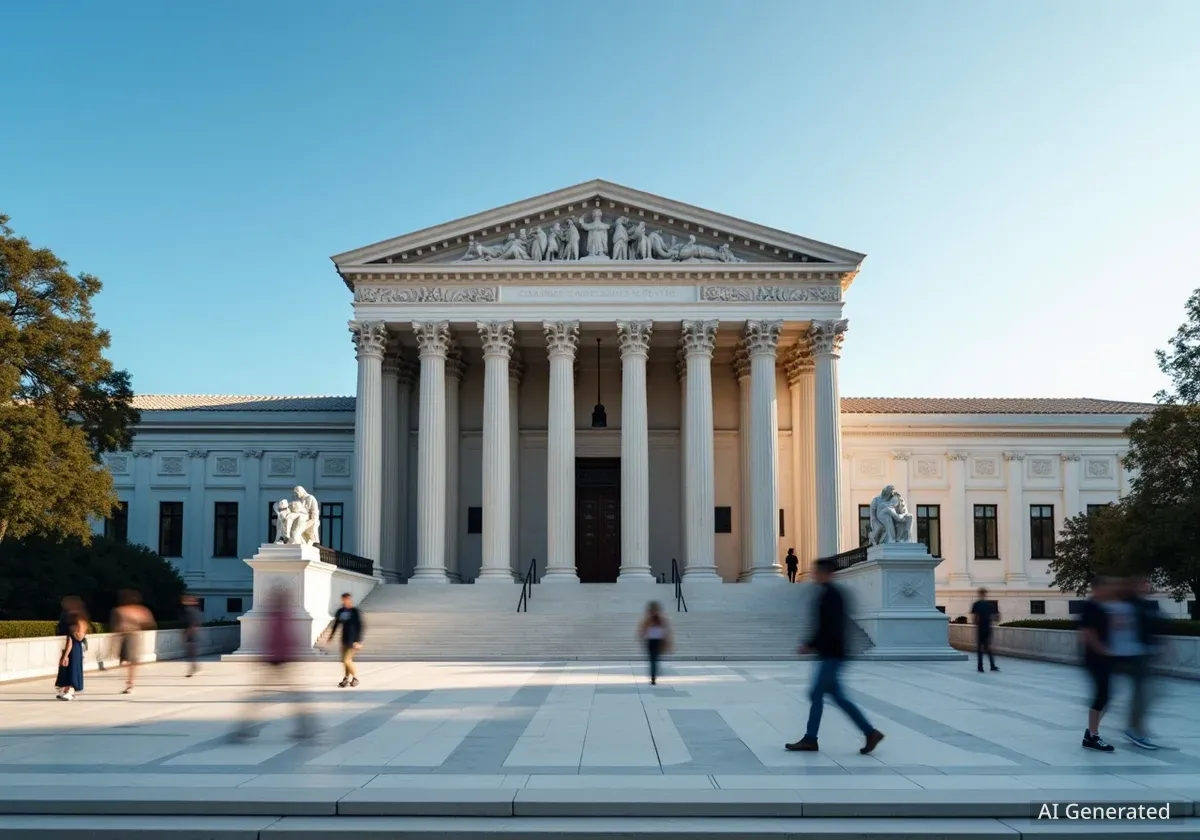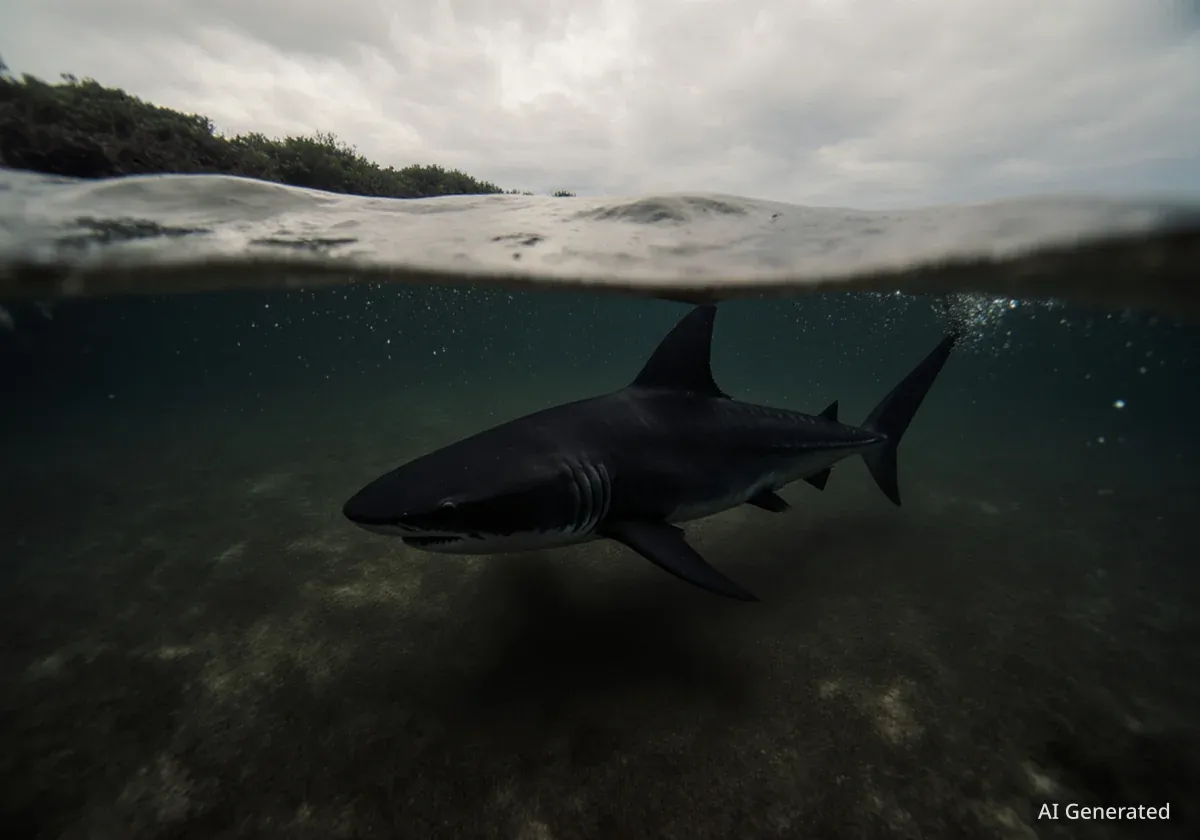A Colorado jury has awarded $205 million to the family of Wongel Estifanos, a six-year-old girl who died in a 2021 incident at Glenwood Caverns Adventure Park. The verdict comes after a civil trial determined the park and the ride's manufacturer were at fault for the fatal fall from the Haunted Mine Drop attraction.
Key Takeaways
- A Garfield County jury awarded $205 million to the family of Wongel Estifanos.
- The award consists of $82 million for emotional distress and loss, and $123 million in punitive damages.
- The 2021 incident occurred after an operator incorrectly secured the child's seatbelt.
- Glenwood Caverns Adventure Park stated the verdict could jeopardize the park's future and local jobs.
Details of the Jury's Verdict
After a four-year legal process, a jury in Garfield County reached a decision on September 19, 2025. The financial award is one of the largest of its kind for a wrongful death case involving an amusement park. The total sum of $205 million is divided into two main categories.
The family was awarded $82 million for emotional distress and loss, which compensates for their suffering. An additional $123 million was awarded in punitive damages, a measure intended to punish the defendants for their conduct and deter similar negligence in the future.
Dan Caplis, the attorney representing the Estifanos family, spoke about their motivations for pursuing the case. He explained that the family's goal extended beyond compensation.
"It's enormously important to [the family] because this has been their mission since they buried their daughter — to just try to protect other people," Caplis told CPR News. "And the amusement park had never admitted fault, had denied fault, so [the family’s] mission was to try to protect others."
The jury assigned significant fault to both Glenwood Caverns Holdings, the park's parent company, and Soaring Eagle, the company that designed the ride. Evidence presented during the trial suggested the company had not disclosed previous issues with the ride's restraint system.
The 2021 Incident at Glenwood Caverns
The incident occurred on Labor Day weekend in 2021. Wongel Estifanos was visiting the popular mountaintop theme park with her family when she boarded the Haunted Mine Drop, a ride that plunges riders 110 feet down a shaft designed to look like an old mine.
A subsequent state investigation conducted weeks after the event provided critical details. The report found that Estifanos was not properly secured in her seat. Instead of being buckled in, she was sitting on top of both of her seatbelts. The report stated she was only holding the tail of one belt across her lap.
Operator Error and Training Deficiencies
The official investigation determined that the primary cause was not mechanical failure but human error. According to the state's findings, a warning alarm sounded before the ride began, indicating a problem with the seatbelt on Estifanos's seat.
Investigation Findings
A 2021 report from the Colorado Division of Oil and Public Safety concluded that the death was caused by "multiple operator errors" resulting from "inadequate training." Investigators found no mechanical malfunctions with the Haunted Mine Drop ride itself.The ride operator, however, did not know how to properly respond to the specific alarm. Lacking the necessary training to resolve the seatbelt issue, the operator proceeded to launch the ride. Estifanos fell from her seat during the drop, resulting in fatal injuries.
Following the investigation, prosecutors declined to file criminal charges. They concluded that while negligence was evident, they could not meet the high legal standard of proving criminal negligence beyond a reasonable doubt. This led the family to file a civil lawsuit in 2022.
Park's Response and Future Concerns
Glenwood Caverns Adventure Park has permanently closed the Haunted Mine Drop ride since the 2021 incident. A new attraction was installed in its place in 2023. Throughout the legal proceedings, the park maintained that it was not at fault.
In a statement released after the verdict, the park expressed sympathy for the Estifanos family but also raised serious concerns about its own viability. A spokesperson for the park addressed the potential economic consequences of the large financial award.
"If the jury verdict remains as it is, hundreds of local jobs are in peril," the spokesperson said. The statement highlighted the park's role as a major employer and economic driver in the region.
Economic Impact on Glenwood Springs
Glenwood Caverns Adventure Park is a significant contributor to the local economy of Glenwood Springs, a town with approximately 10,000 residents. The park employs hundreds of workers, particularly during the peak summer season, and attracts over 200,000 visitors each year, boosting the area's tourism industry.The park's statement noted that their "hearts go out to the family of Wongel Estifanos and everyone affected by the tragic accident that happened on September 5, 2021." However, the financial implications of the $205 million verdict place the 26-year-old amusement park's future in an uncertain position.
Legal Precedent and Amusement Park Safety
The size of the verdict sets a significant precedent for the amusement park industry, emphasizing the financial consequences of safety failures, particularly those related to employee training and operational procedures. The jury's decision to award substantial punitive damages sends a strong message about corporate accountability.
The case underscores critical aspects of attraction safety, including:
- The importance of robust and repeated employee training.
- The need for clear procedures for responding to safety alarms and warnings.
- Full disclosure of any known issues with ride restraint systems from manufacturers.
- The severe legal and financial risks parks face when they fail to ensure guest safety.
The outcome of this case will likely be studied by theme parks and ride manufacturers nationwide as they review and reinforce their own safety protocols and training programs to prevent similar incidents.





